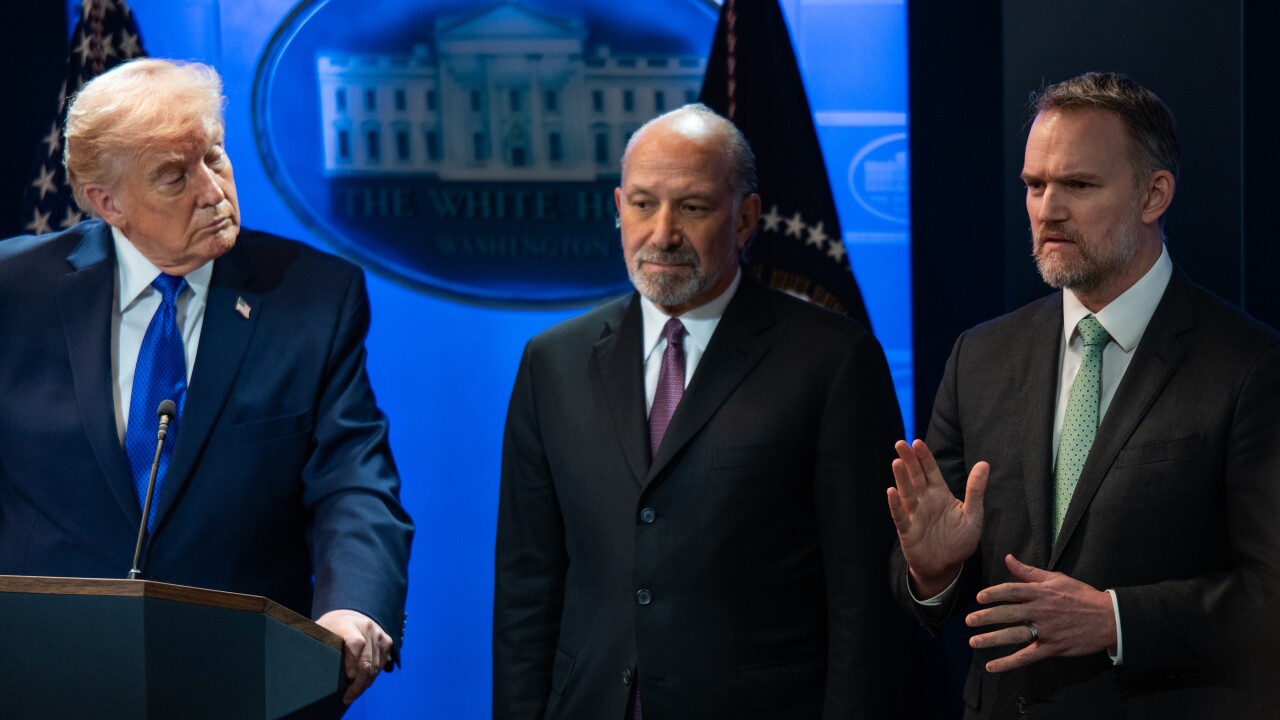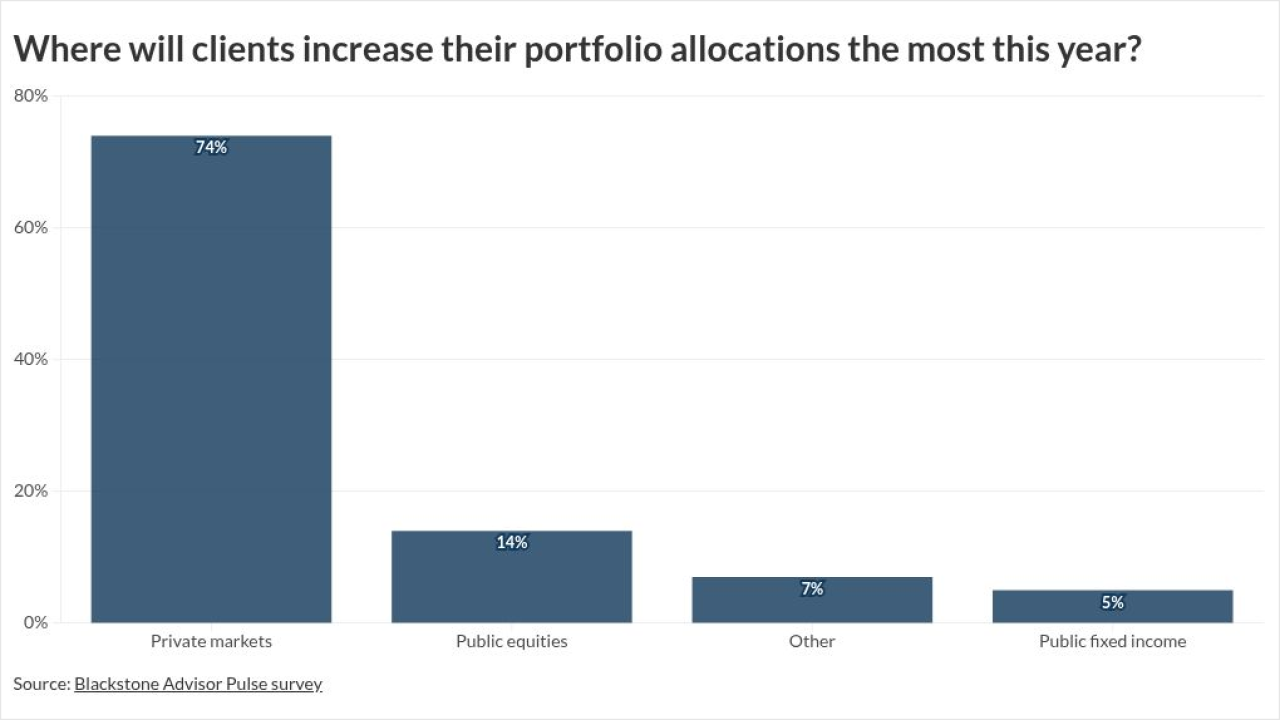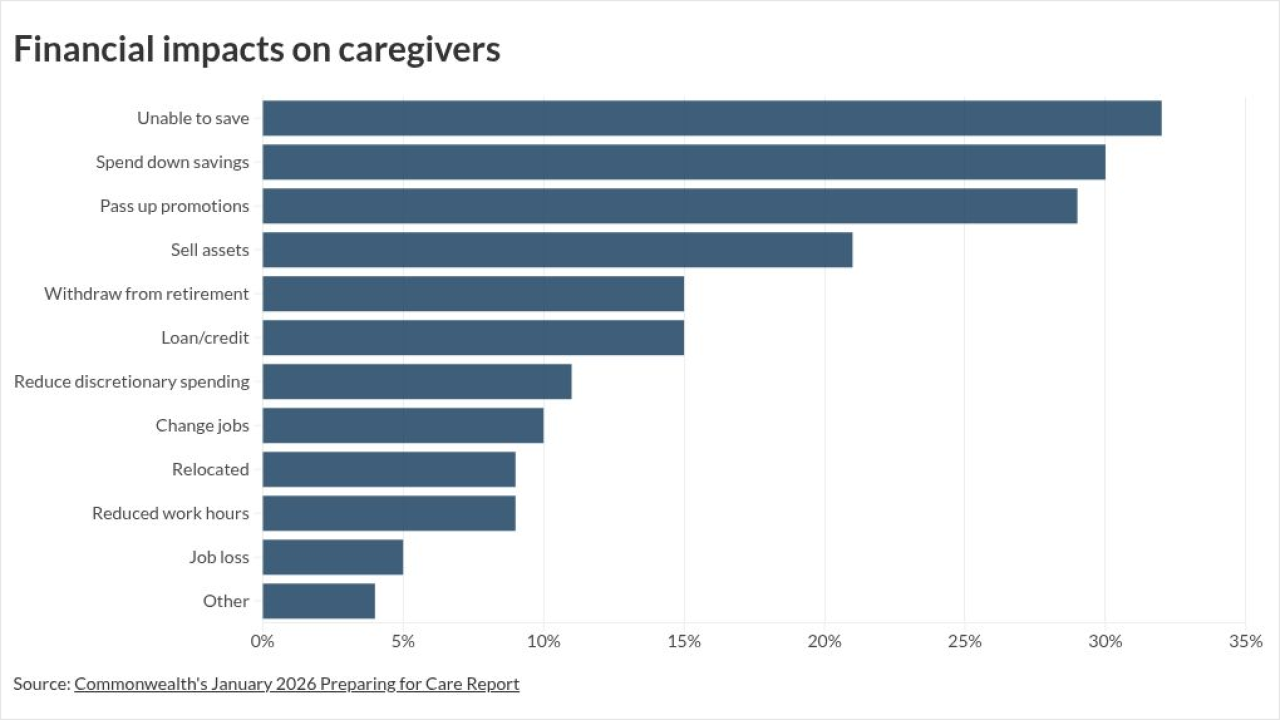NEW YORK - To illustrate just how dramatically the compliance landscape has changed within the money management industry in recent years, Richard Marshall recalled his days as an examiner in the New York office of the Securities and Exchange Commission during the 1980s.
"At that time, we were on a 40-year inspection cycle," said Marshall, now a partner with Kilpatrick & Lockhart in New York and chairman of the Investment Adviser Compliance Forum, held here last week. "There was a registrant that we went to inspect that had been inspected 20 years earlier, in 1968, and they complained that we were harassing them. You got one inspection per career, that was the rule," he said.
As further evidence, Marshall cited a 1988 case before the Delaware Supreme Court, in which a group of shareholders who had been bilked terribly by the officers of a corporation, sued the fiduciary's directors for not having an established system of compliance.
"The highest court in Delaware threw the case out because a fiduciary at that time didn't have to do anything proactive. They just had to respond to something when it was brought to their attention," Marshall said. "So when you talked about compliance in 1988, people looked at you like you were insane."
But today - as any investment company, investment advisor, broker/dealer, accounting firm, futures trader or public reporting company might attest - every registrant that regulators can reach is presented with a complex, costly and sometimes burdensome compliance responsibility.
"Everything has changed," Marshall added. "The Delaware case has been reversed. Now there is a duty, an obligation, an expectation on behalf of the fiduciary to be proactive, to prevent things from happening."
The modest group of compliance and investment management professionals gathered at the conference, who are working under what Marshall characterized as vague guidance from the SEC, seem to still be wrestling mightily with the regulatory sea change. And judging from attendees' questions, when to report a violation to regulators is one of the most difficult dilemmas facing investment advisor compliance officers.
That's because, unlike a mutual fund chief compliance officer, whose obligation under SEC Rule 38(a)-1 is clearly to the shareholders, an investment advisor CCO owes their duty to the firm. A panel of compliance experts at the conference characterized it as an "employee to employer" relationship.
So, in short, the advisor's CCO walks a fine line between maintaining open relations with regulators, while not raising undo alarm among the firm's executives by reporting to Washington every time a compliance matter arises.
Michael Butowsky, a partner with Mayer & Brown in New York, called the information that accompanied SEC rule 206(4)-7, a 16-month-old amendment to the Investment Adviser's Act of 1940, "skimpy," and said that, contrary to prevailing industry sentiment, there is no language within the rule that would imply that the advisor's CCO should act as some sort of disinterested director.
At the same time, however, that doesn't mean the advisor's CCO should neglect alerting the SEC to, say, a compliance matter that was uncovered but quickly corrected. That's because the SEC, Butowsky said, has made it clear through its standard exam request which violations should be documented.
"We know where the SEC stands," Butowsky said. "They're asking every compliance officer to report every violation at every level, whether that's at the time it occurred or not."
Joseph McGill, chief compliance officer at UBS Global Asset Management in New York, said his firm is including "even the smallest violations" on its annual exam requests because the SEC's definition of a compliance breach is "very broad." But outside of the annual exam document, McGill said he would weigh the materiality of each case before dialing up the SEC. And if it were a particularly egregious matter, he said he would first notify firm management and the directors of the funds, to whom he has immediate access, and then the SEC.
"Thankfully, I haven't had that situation at UBS, but if I did, I would be inclined to go to the SEC immediately, because they're going to know anyway," he said.
As an added incentive, the SEC has conveyed in recent weeks that it takes self-reporting into account when proposing penalties, observed Jay Baris, a partner at Kramer & Levin in New York. Issued on Jan. 4, the statement details a litany of prerogatives and parameters that the SEC uses to propose penalties against firms that violate a securities law. In particular, the statement indicates, "The degree to which a corporation has self reported an offense is a factor the Commission will consider in determining the propriety of a corporate penalty."
Baris said that while the statement "is not especially helpful guidance," it implies that "if you fess up and take corrective actions and not a lot of people got hurt, that's a good thing. So they are encouraging self-reporting. They are encouraging self-policing."
"I think it does take the wind out of their sails, to a certain extent," McGill added, "if you're able to show that you've taken corrective steps, that you've taken action against the employees and mitigated the risk."
McGill noted, however, that keeping the firm's board of directors up to speed on compliance matters might be more important than trying to decide whether to report to the SEC. He said his firm recently encountered a deficiency with one its service providers, where "somewhat of a large amount" of money was involved, although it wasn't material and didn't impact the shareholders, and there was no loss to the fund. Either way, the SEC felt he should have brought the matter before his firm's board much earlier.
"The SEC really wants you to bring matters to the board in a quick manner," he said, adding that if he were a CCO at an advisor that didn't have a board of directors, he would take the matter to senior management, or "escalate it as far as I could up the ladder and indicate the steps I'd like taken. But you have to work with the business to create a corrective solution that really works. It can't be a Band-Aid."
But where should a CCO turn, as more than one conference attendee submitted earlier in the day, when an issue is run up the chain and senior management is uncooperative or disagrees with the compliance officer's findings or recommendations because it might incur a monetary loss?
More often than not, Butowsky said, both sides will find that the disagreement occupies one of "those gray areas" of today's compliance landscape, where "the SEC hasn't flatly said it's illegal" and every firm is taking a different approach. But if it's beyond that, Butowsky said the CCO might want to consider working elsewhere.
McGill agreed.
"At that point, you have to look at your career and where you're going, because you're putting yourself in jeopardy," McGill said. "It's probably the wrong culture and the wrong firm, and you should look for another job."
(c) 2006 Money Management Executive and SourceMedia, Inc. All Rights Reserved.
http://www.mmexecutive.com http://www.sourcemedia.com





